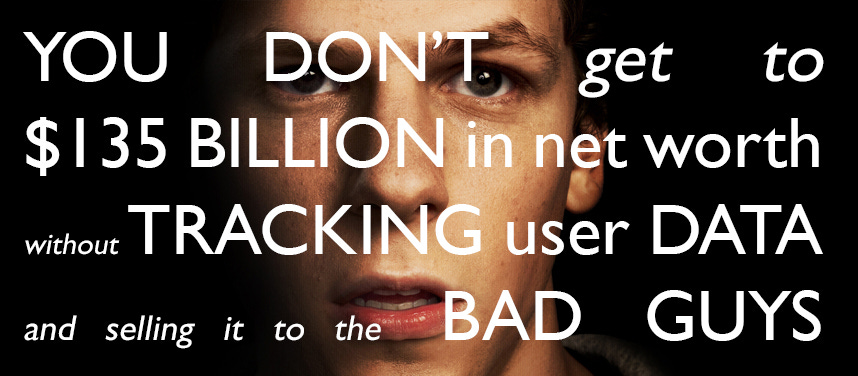Calling All Visigoths: The Dark Side of Big Tech (with Bret Pettichord)
Facebook's "like" button is the root of all evil Google promised not to be.
In the final season of HBO’s Silicon Valley, Gavin Belson, the buffoonish head of Hooli, a sort of fake Amazon/Google amalgam, leaves the company to start a non-profit that focuses on Tech Ethics, which he calls “Tethics.”
This is funny in a literal way, because the portmanteau sounds ridiculous. It’s also funny in a meta way, because the idea of Tethics—that is, that Tech and Ethics could ever coexist—is ridiculous.
Silicon Valley (the industry, not the show) is a place where Ethics goes to die. It is the Wild West. There are no rules. There are no regulations. And the prevailing philosophy of the CEOs is the same asshole libertarianism espoused by the Evil Geniuses Kurt Andersen writes about in his book. You know, creeps like Leonard Leo who want to unmake the New Deal and kill off democracy.
Bret Pettichord—software architect, author, open source contributor, Twitter researcher, and my new neighbor here in the Hudson Valley—is evangelical about the dangers of this. He looks back in horror at what Facebook, in particular, has built, and how Mark Zuckerberg’s app for rating the hotness of Harvard coeds has threatened the very survival of our democracy.
The key issue is simple: “There’s no internal controls on the data,” he tells me, in today’s episode of the PREVAIL podcast. Data is a murky word for us non-tech people, but what it means is basically everything. They track everything: basic stuff like your name and geolocation, but also what sites you visit, what you buy, articles you read, words you use in your status updates. All of it.
This information is used to hone their algorithm, another fuzzy word I asked Bret to explain for me. And it can also be shared, sold, subverted, weaponized—what does Zuckerberg care? From what I can tell, “I’m the CEO, bitch,” his business-card line made famous in The Social Network, should not have the comma. He fancies himself a Roman emperor of old, all-powerful, but from what I can gather, he’s nothing but a rich Renfield, a hopeless dork extremely well-compensated for doing what’s he’s told.
“In April of 2010, Facebook introduces the ‘like’ button. And it, quote, is not for user tracking. Except, it was for user tracking,” Pettichord tells me. “And they did this in April of 2010, after their first infusion of cash from Russia, and before their second infusion of cash from Russia. They added the ability track you across websites outside of the Facebook ecosystem. Up until that point, they did not have it.”
This is how the Facebook feed is able to react to your activity on the Internet. A few days before our interview, I made some online purchases, including a new hoodie. Then I checked Facebook. And lo, an ad for the hoodie company whose site I’d visited was, somehow, in my feed. Which makes no sense. How could Facebook possibly know what sites I’d visited?
“The ‘like’ button has a tracking beacon built in it,” Bret explains. “It’s basically a bugged button.”
Not just the ‘like’ button on Facebook itself. Any site that has Facebook buttons on it. Which is most retail sites. And a lot of other things besides. So, yeah. Mark Zuckerberg is the Lord of All Knowledge.
As currently written, there is precious little the law can do about this sort of thing. Like the monopolies of 120 years ago, Big Tech remains dangerously underregulated. Indemnified from liability for what appears on the platform—free speech, man!—Facebook can do whatever it wants with regards to content. The only real penalty for crappy moderation is users abandoning ship. As long as we keep logging in and utilizing the app, Facebook has zero incentive to clean itself up. Short of consumer revolt, only Congress can fix this problem.
There’s no internal controls on the data.
That’s because when it comes to Ethics, Mark Zuckerberg makes Gavin Belson look like Marcus Aurelius.
LISTEN TO THE PODCAST
S2 E2: Calling All Visigoths: The Dark Side of Big Tech (with Bret Pettichord)
Description: Greg Olear brings on his friend, the software architect, author, and open source contributor Bret Pettichord, to discuss women in tech, iPhone hacking, the Pegasus software scandal, Facebook’s lack of ethics, Mark Zuckerberg’s fascination with ancient Rome, and the need for more social media platforms. Plus: a new online dating app.
Follow Bret on Twitter:
https://twitter.com/bpettichord
Buy his book:
https://www.amazon.com/exec/obidos/ASIN/0471081124/bretpettichossof





I'm looking forward to the podcast this afternoon. This gave me the shivers.
I was under the impression that if you opted out of tracking in settings such as Amazon,Google, and others and also chose to not keep track of your search history on your browser that it should stop. In the settings it says that you would receive just as many ads but they would not be selected for you. It appears to be acting as stated. Am I missing something here?